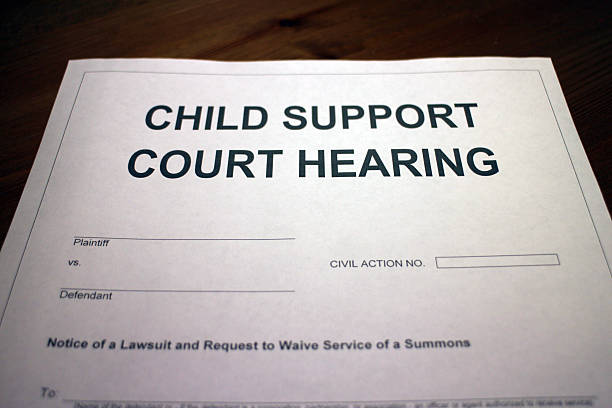Contents
When it comes to post-separation parenting, one of the most important—and often confusing—things to figure out is child support. It’s the financial contribution from both parents to help raise a child, but understanding how it works can feel like deciphering a legal puzzle. Thankfully, this 7-step guide to child support is here to break it down. Whether you’re negotiating a child support agreement or dealing with the complexities of an existing arrangement, child support legal advice in Melbourne can make all the difference.
Key Takeaways:
- Understand your legal rights and obligations: Know your child support responsibilities.
- Get the calculations right: Child support is based on income and care arrangements, so make sure you know how to calculate it accurately.
- Formalise your agreement: A formal, legally binding contract is essential to avoid future disputes.
- Handle disputes effectively: If there’s a disagreement, understanding your options for resolving it will save you time and stress.
- Monitor and adjust regularly: Child support arrangements must evolve with changes in circumstances.
Step 1: Understanding Your Legal Rights and Obligations
Before diving into the mechanics of child support, it’s essential to understand what the law says about your rights and obligations. In Australia, child support is governed by the Child Support (Assessment) Act 1989, which provides the framework for assessing and enforcing payments.
The key principle is that both parents are financially responsible for their child, even if separated. Child support is not about punishment or reward; it’s about ensuring the child has the resources needed for a healthy upbringing. If you’re unclear on your role, consulting with child support legal advice in Melbourne can give you the clarity you need.
Step 2: Establishing Paternity or Parentage
Before proceeding with child support, it’s crucial to establish the child’s legal parentage. In most cases, parentage is assumed, but in some situations (e.g., a dispute over biological parentage), a paternity test may be required.
While this step may seem straightforward, it can be tricky if there’s doubt. Legal assistance can help you navigate these waters smoothly and avoid unnecessary delays in the child support process.
Step 3: Applying for Child Support
Once parentage is established, the next step is to apply for child support. In Melbourne, parents can apply through the Department of Human Services (DHS) or opt for a private arrangement. The DHS handles most cases, using an online system to assess payments based on income and care levels.
Alternatively, parents can create a private agreement where they agree directly on the payment amount and frequency. However, seeking legal advice when entering into private agreements is crucial, as they must be fair, reasonable, and legally binding to avoid future disputes.
Step 4: Calculating Child Support Payments
One of the most common questions parents ask is: “How much child support will I pay?” Well, it’s not a simple answer. Child support payments are based on factors like:
- Income: Both parents’ income is taken into account.
- Care arrangements: The amount of time each parent spends with the child.
- Special needs: If the child has any medical or educational needs, this can affect the payment calculation.
The government provides a Child Support Calculator to help estimate payments, but it’s important to remember that the calculation can get complex. Seeking child support legal advice in Melbourne ensures you interpret the numbers correctly and avoid mistakes.
Here are the key factors that affect child support payments:
- Income of both parents
- The percentage of care each parent provides
- The child’s special needs (if any)
- Any pre-existing child support obligations (from previous relationships)
Step 5: Formalising Your Child Support Agreement
Once you’ve determined the appropriate payment amount, it’s time to make it official. This step involves formalising the agreement to make it legally binding. There are two main types of child support agreements:
- Binding Child Support Agreements – These agreements are legally enforceable and cannot be changed without the consent of both parties.
- Non-Binding Child Support Agreements – While these agreements are less formal, they can be harder to enforce in the long run.
Having a lawyer review or draft your agreement ensures that it’s fair and legally sound, preventing potential issues down the line.
Step 6: Managing Disputes and Non-Compliance
Sometimes, despite everyone’s best efforts, things don’t go as planned. Non-payment, disputes over the amount, or disagreements about care arrangements can cause significant stress.
In such cases, dispute resolution options like mediation or Family Dispute Resolution (FDR) can be beneficial. If these methods fail, the matter can be taken to court, but this is usually a last resort.
It’s always a good idea to consult with a child support lawyer in Melbourne to understand your rights and options, particularly if the other parent isn’t following the agreement.
Step 7: Monitoring and Adjusting Child Support Arrangements
Life changes, and so do financial circumstances. If there is a significant change in either parent’s income, the child’s needs, or the care arrangements, the child support agreement may need to be reviewed and adjusted.
Child support can be increased or decreased based on these new circumstances, so keeping track of changes is essential. If an agreement isn’t adjusted accordingly, one parent might pay too much or too little child support.
Conclusion: Getting Help with Your Child Support Arrangements
Understanding and navigating child support can feel like a maze, but with the right legal help, you can stay on track and avoid the common pitfalls. Whether you’re just starting the process or dealing with an existing arrangement, Tonkin Law’s expert team of child support lawyers in Melbourne guides you every step. We can help ensure your child’s future is financially secure while protecting your rights as a parent.
Don’t let child support become a headache. Contact Tonkin Law today for expert legal advice and support tailored to your situation.




